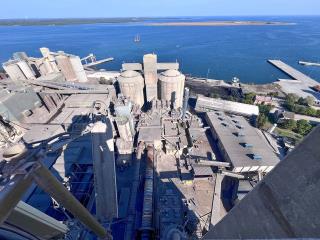The effective management and disposal of municipal solid wastes (MSW) in India has become a major concern. Forecast rapid urbanisation, uncontrolled population growth and rising per capita income are expected to exacerbate the issue. As a result, the co-processing of MSW in cement kilns is becoming an increasingly-attractive option.
The significance of the MSW management and disposal issue is underlined by India’s Prime Minister, Narendra Modi’s recent launch of the Swachh Bharat Abhiyaan (Clean India Campaign) to clean more than 4000 towns and cities in the country. This initiative is India’s biggest-ever such drive, which eminent people from different walks of life are being encouraged to promote. However, the challenge is huge. The total generation of MSW from urban sources alone in the country is estimated at about 68Mt (2011-12).
The responsibility for handling these wastes is with local municipal corporations, but in undertaking these operations, they face severe challenges, including a scarcity of financial resources, inherent institutional weaknesses and choice of waste disposal method/technology.
